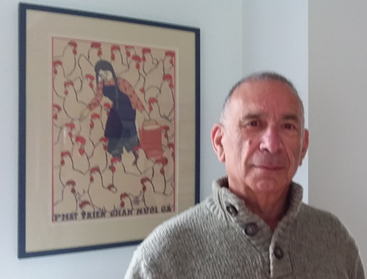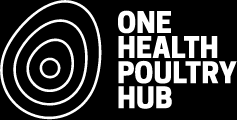New research by the RVC calls for social science input into pandemic policy and response
A new study by the Royal Veterinary College (RVC), highlights the challenges and implications for One Health research and the importance of including the social sciences in creating effective government policy to mitigate the spread of zoonotic diseases, such as Covid-19.
A One Health approach is a perspective of health that recognises the interconnection between people, animals, plants and the shared environment. It is a methodology that merits close interdisciplinary cooperation between biological sciences, epidemiology and the social sciences. However, social sciences are often omitted when informing public policy, as demonstrated by recent calls for a more inclusive committee for the UK Government’s Scientific Advisory Group for Emergencies (SAGE).

The research, led by Professor Tony Barnett, a social scientist at the RVC, analysed current limitations facing interdisciplinarity and the ability to achieve holistic understandings. As well as this, it explored the separate interventions with regards to both human and animal health which fail to account for human behaviour in relation to the social sciences disciplines.
The results show how and why social sciences should always be used to understand pandemics – both now and in the future. Professor Barnett and teams from the RVC and Bangladesh conducted long term studies of poultry production and trading in Bangladesh and are now undertaking additional studies in India, Bangladesh, Sri Lanka and Vietnam. The aim is to identify how the social and economic relations of production, trading and retailing create niches, nodes and gradients which increase the likelihood of pathogen evolution toward increased virulence and likelihood of transfer to human beings and thus the possibility of development of pandemic spread.
The findings of this study indicate that in order to avoid the historical “gross simplification” of responses to zoonotic transmission of disease, there must be proper conceptualisation as to how future projects might be successfully undertaken, particularly in achieving a contextualised understanding, including social science disciplines.
Suggesting possible ways forward, the researchers propose two challenging approaches:
- Take time to think collectively about the possibility and forms of interdisciplinary working and thinking, about why we have disciplines and how and why these divisions are maintained and might be made permeable. This might be done as part of day to day work in the laboratory, the seminar, the conference, the lecture theatre – the common locales of the working researcher.
- Seek opportunities for discussion and investigation of interdisciplinary working and knowledge in the formal training of those who are commencing their study of “disciplines” so that they can know from the start that the complexity of the world they wish to investigate is reflected within the complexity of the processes by means of which they come to investigate, to know and to learn about that world.
Tony Barnett, Professor of Social Sciences at the RVC, said: “It’s obvious really, infection is above all a social process. It takes many different forms and responses to infection are also social. Ever since I did the first study of the effect of HIV/AIDS on rural communities in Africa in the late 1980s and later studied the potential impact of pandemic influenza on the UK in 2007-8, I have been surprised at the way that epidemic and pandemic response policy so often neglects social science inputs.
“The publication of this paper by a multinational research group in a veterinary journal indicates that the ground is shifting and interdisciplinary research on infection is now firmly on the agenda.”
Research reference
The full paper is available at: Practising co-production and interdisciplinarity: Challenges and implications for one health research

This paper was authored by members of the UKRI GCRF One Health Poultry Hub, an £18M interdisciplinary research programme that seeks to understand and reduce the risk of transmission of zoonotic diseases from chickens to humans.
The Hub is led by RVC Professor Fiona Tomley.
Notes to Editors
For more information please contact:
- Jasmin De Vivo (Jasmin.DeVivo@plmr.co.uk)
- Press Line: 0800 368 9520
About the RVC
- The Royal Veterinary College (RVC) is the UK's largest and longest established independent veterinary school and is a Member Institution of the University of London. It was the first in the world to hold full accreditation from AVMA, EAEVE, RCVS and AVBC.
- The RVC is the top veterinary school in the UK and Europe, and ranked as the world’s second highest veterinary school in the QS World University Rankings by subject, 2020.
- The RVC offers undergraduate and postgraduate programmes in veterinary medicine, veterinary nursing and biological sciences.
- In 2017, the RVC received a Gold award from the Teaching Excellence Framework (TEF) – the highest rating a university can receive.
- A research led institution with 79% of its research rated as internationally excellent or world class in the Research Excellence Framework 2014.
- The RVC provides animal owners and the veterinary profession with access to expert veterinary care and advice through its teaching hospitals and first opinion practices in London and Hertfordshire.

